DISCOVERING NEW RENWOMEN:
Linda Di Fiore
As I've been talking to people about our book, RenWomen, I have met a number of women who are clearly RenWomen themselves. One such woman is the extraordinary Linda Di Fiore.
Dr. Linda Di Fiore (Doctorate in Musical Arts) has a long history of throwing herself into new opportunities and successfully discovering and developing new passions. While the majority of her work has occurred within the realms of music and academia, Linda clearly has what I call a "RenWoman state of mind." She follows her curiosity wherever it leads, and she develops diversified skillsets that ultimately make her invaluable in the various professions she pursues. She understands on a deep level that there is not just one path to a goal, but multiple complementary avenues that enrich the pursuit and realization of that goal.
Linda is both a prominent classical and musical theatre voice performer (mezzo soprano), and an inspired and influential professor. For over forty years, she has performed professionally as a soloist in opera, oratorio, recital, and musical theatre. Her career has included guest performances with such groups as the St. Paul Chamber Orchestra, Minnesota Orchestra, Minnesota Opera, Bach Aria Festival in New York City, Orlando Opera, just to name a few. As a song recitalist she has performed internationally in such countries as Austria, Italy, Canada, and Puerto Rico; and nationally in numerous cities throughout the U.S. Additionally, she has toured England and Scotland as an oratorio soloist.
Academically, Linda's career is no less illustrious. Currently serving on the faculty of the University of California at Santa Barbara as Adjunct Professor and as Area Head of Voice, she recently retired from the College of Music of the University of North Texas where she was a Regents Professor of Voice, and where she received the Citation for Distinguished Service to International Education and the President's Council Teaching Award. Prior to that, she was a Professor of Voice at the University of Florida, where she twice received the Teacher of the Year Award for the College of Fine Arts as well as a Teaching Incentive Program Award from the Florida Board of Regents. She has also presented master classes throughout the country and internationally, as well as taught in summer programs in Venice, Casalmaggiore, and Innsbruck. She currently serves on the faculties of the American Institute of Musical Studies in Graz, Austria, and the Amalfi Coast Music Festival. In 2005, Dr. Di Fiore served as a Visiting Professor of Voice at the distinguished Eastman School of Music. Since 2004, she has held the distinction of Master Teacher in the National Association of Teachers of Singing, a lifelong designation.
Linda was lucky to grow up in a family where the children were encouraged to think for themselves and to pursue whatever spoke to their hearts.
"Mine was a very enlightened, highly educated family . . ." she tells me. "There was always lively discourse around the dinner table, heated sometimes, but fascinating. And we were always asked our opinions.” Her parents encouraged the arts and hard work. Her father was a psychologist who loved musical theater, and showed Linda unconditional love. Her mother an educator with a master's who loved classical music, and was less affectionate, but instilled drive and determination in Linda. "The balance between those two was very important," she explains. Linda had a natural talent for music; she could hear a song played on the piano and be able to reproduce it before she even knew how to read music. She began developing her natural ear by taking piano lessons and singing in the choir. She also studied Latin and Spanish in high school. (Foreign languages would be a passion she would pursue all her life, eventually learning six languages!)
Interestingly, Linda's first academic interest in college was mathematics, but she switched to music theory in her sophomore year. Of course, as many know, there is a direct connection between mathematical and musical skills — especially when it comes to theory. But this is also an illustration of a frequent Ren trait: that of a balance between right and left brain skills - a trait that would serve her well in the years to come.
Linda got a full ride for graduate school and a teaching fellowship at the University of Iowa, where she completed her first master’s degree, in music theory. While at Iowa, the head of the music department encouraged students pursuing careers in academia to broaden their educations instead of staying singularly focused, because of the impending cutbacks. When Linda moved to Wichita with her husband at the time, she followed that advice and applied to get another master’s, in voice, at Wichita State University. The Dean of the School of Music so recognized her gifted abilities that he first turned her down for being overqualified. Linda would not take no for an answer. She convinced the Dean that not only did she have room to grow, but she also had a genuine love of learning that should not be discouraged. Her Ren attitude—insatiable curiosity, trust in her abilities, and the courage to take risks—helped her to demand the opportunity that she deserved.
In Wichita, with encouragement from colleagues, Linda found herself auditioning for Music Theatre Wichita, a program that performs 6 musicals and operettas in a venue for 3,000 patrons every summer. As she had only ever performed in choirs, her immediate response to the opportunity was, “I’m not qualified…I’ve never done it," But in typical RenWoman fashion her next thought was "Okay, I’ll go for it!” She ended up performing in five musicals that summer and was additionally cast in a role every single semester she was at Wichita State. It was during her time at Wichita that Linda became particularly enamored with opera and the theatre.
After finishing her second master’s in voice at Wichita, a job opened up at Bemidji State University in Northern State Minnesota, and the plentiful skills she had collected found their perfect fit. Bemidji needed someone to teach voice and theory, and to direct the choir. Linda had the rare combination of a master’s in voice, a master’s in theory, experience teaching both (she had held teaching assistant jobs during both sets of graduate studies) and experience directing a choir (at Wichita, she had directed a choir during her teaching assistant internship). As Linda says, “It was like this glove, so it was a great first job. And it was because I was a generalist, not a specialist, that I got that first job.”
Linda stretched once again when she decided to get her doctorate of musical arts (DMA) in voice at the University of Minnesota. This, interestingly, led her into a new path of specialization. When, Linda applied to teach voice at the University of Florida (along with 250 applicants,) she looked over her experience, and thought "I’ve taught vocal literature, opera literature, I was in the choirs, I was opera producer so I had opera experience. I had taught French diction, German diction, and Italian diction. Then in addition I had taught music theory and I had taught composition and counterpoint. But I told them, 'I have been a generalist but now, with my doctorate, I've become a specialist.' I knew it was a specialist they needed." She got the job.
After 14 years at the University of Florida, she moved on to become the youngest faculty member in the Division of Vocal Studies at the esteemed University of North Texas where she taught many of the best students in the country for 18 years. Her students went on to achieve great things, including acceptance into the most prestigious summer and young artists' programs in the U.S., winning or placing in numerous national competitions, and singing roles in the major opera houses of the US and Europe. She is deeply proud of this teaching legacy.
As gratifying as this all was, Linda found herself in search of growth again. As she put it: "It was a chapter. There have been chapters in my life and once I've done everything I want to do there, I start to get restless." This led her to her current position at the University of California, Santa Barbara. There, she has spread wings again. She does administrative work for Westmont Academy of Vocal Excellence, teaches and sits on the Education Board of Opera Santa Barbara, and served for two years on the Women's Board of the Community Arts Music Association of Santa Barbara. She is involved with Music Academy of the West, which includes having singers in the program, hosting faculty, and finding ways to collaborate between UCSB and MAW — all of which are supported by Scott Reed and Marilyn Horne. "All these doors have just opened up in Santa Barbara, things I never had time to do at North Texas because I was so singly focused. So, I started as a generalist and then became more specialized and now I’m back to a smaller program where I can put my finger in these different pies and it’s so much fun.”
If all of this weren’t enough, throughout her career journey, Linda has pursued numerous "extra curriculars." She continued to take piano lessons and language classes, she organized opera galas for fundraising purposes, she served on an international studies committee to build a study abroad program — oh, and... she raised a daughter!
Linda’s broad education and work experience have opened up opportunity after opportunity for her, and each new job has not only built her résumé but has also grown her learning. Her unique combination of raw talent, determination to continue achieving academically, and courage to say YES to things that might be uncomfortable at first, have led her to passions and areas of expertise that she might not have discovered if she had limited herself to one thing.
She describes her approach to life in the following way: “I can try anything, I can learn anything. In whatever job I've held I have wanted to be the best I can be and I've wanted to push myself as far as I can go." This is quintessential RenWoman thinking. I was privileged to spend time interviewing this highly accomplished and multifaceted woman.
Linda Di Fiore
As I've been talking to people about our book, RenWomen, I have met a number of women who are clearly RenWomen themselves. One such woman is the extraordinary Linda Di Fiore.
Dr. Linda Di Fiore (Doctorate in Musical Arts) has a long history of throwing herself into new opportunities and successfully discovering and developing new passions. While the majority of her work has occurred within the realms of music and academia, Linda clearly has what I call a "RenWoman state of mind." She follows her curiosity wherever it leads, and she develops diversified skillsets that ultimately make her invaluable in the various professions she pursues. She understands on a deep level that there is not just one path to a goal, but multiple complementary avenues that enrich the pursuit and realization of that goal.
Linda is both a prominent classical and musical theatre voice performer (mezzo soprano), and an inspired and influential professor. For over forty years, she has performed professionally as a soloist in opera, oratorio, recital, and musical theatre. Her career has included guest performances with such groups as the St. Paul Chamber Orchestra, Minnesota Orchestra, Minnesota Opera, Bach Aria Festival in New York City, Orlando Opera, just to name a few. As a song recitalist she has performed internationally in such countries as Austria, Italy, Canada, and Puerto Rico; and nationally in numerous cities throughout the U.S. Additionally, she has toured England and Scotland as an oratorio soloist.
Academically, Linda's career is no less illustrious. Currently serving on the faculty of the University of California at Santa Barbara as Adjunct Professor and as Area Head of Voice, she recently retired from the College of Music of the University of North Texas where she was a Regents Professor of Voice, and where she received the Citation for Distinguished Service to International Education and the President's Council Teaching Award. Prior to that, she was a Professor of Voice at the University of Florida, where she twice received the Teacher of the Year Award for the College of Fine Arts as well as a Teaching Incentive Program Award from the Florida Board of Regents. She has also presented master classes throughout the country and internationally, as well as taught in summer programs in Venice, Casalmaggiore, and Innsbruck. She currently serves on the faculties of the American Institute of Musical Studies in Graz, Austria, and the Amalfi Coast Music Festival. In 2005, Dr. Di Fiore served as a Visiting Professor of Voice at the distinguished Eastman School of Music. Since 2004, she has held the distinction of Master Teacher in the National Association of Teachers of Singing, a lifelong designation.
Linda was lucky to grow up in a family where the children were encouraged to think for themselves and to pursue whatever spoke to their hearts.
"Mine was a very enlightened, highly educated family . . ." she tells me. "There was always lively discourse around the dinner table, heated sometimes, but fascinating. And we were always asked our opinions.” Her parents encouraged the arts and hard work. Her father was a psychologist who loved musical theater, and showed Linda unconditional love. Her mother an educator with a master's who loved classical music, and was less affectionate, but instilled drive and determination in Linda. "The balance between those two was very important," she explains. Linda had a natural talent for music; she could hear a song played on the piano and be able to reproduce it before she even knew how to read music. She began developing her natural ear by taking piano lessons and singing in the choir. She also studied Latin and Spanish in high school. (Foreign languages would be a passion she would pursue all her life, eventually learning six languages!)
Interestingly, Linda's first academic interest in college was mathematics, but she switched to music theory in her sophomore year. Of course, as many know, there is a direct connection between mathematical and musical skills — especially when it comes to theory. But this is also an illustration of a frequent Ren trait: that of a balance between right and left brain skills - a trait that would serve her well in the years to come.
Linda got a full ride for graduate school and a teaching fellowship at the University of Iowa, where she completed her first master’s degree, in music theory. While at Iowa, the head of the music department encouraged students pursuing careers in academia to broaden their educations instead of staying singularly focused, because of the impending cutbacks. When Linda moved to Wichita with her husband at the time, she followed that advice and applied to get another master’s, in voice, at Wichita State University. The Dean of the School of Music so recognized her gifted abilities that he first turned her down for being overqualified. Linda would not take no for an answer. She convinced the Dean that not only did she have room to grow, but she also had a genuine love of learning that should not be discouraged. Her Ren attitude—insatiable curiosity, trust in her abilities, and the courage to take risks—helped her to demand the opportunity that she deserved.
In Wichita, with encouragement from colleagues, Linda found herself auditioning for Music Theatre Wichita, a program that performs 6 musicals and operettas in a venue for 3,000 patrons every summer. As she had only ever performed in choirs, her immediate response to the opportunity was, “I’m not qualified…I’ve never done it," But in typical RenWoman fashion her next thought was "Okay, I’ll go for it!” She ended up performing in five musicals that summer and was additionally cast in a role every single semester she was at Wichita State. It was during her time at Wichita that Linda became particularly enamored with opera and the theatre.
After finishing her second master’s in voice at Wichita, a job opened up at Bemidji State University in Northern State Minnesota, and the plentiful skills she had collected found their perfect fit. Bemidji needed someone to teach voice and theory, and to direct the choir. Linda had the rare combination of a master’s in voice, a master’s in theory, experience teaching both (she had held teaching assistant jobs during both sets of graduate studies) and experience directing a choir (at Wichita, she had directed a choir during her teaching assistant internship). As Linda says, “It was like this glove, so it was a great first job. And it was because I was a generalist, not a specialist, that I got that first job.”
Linda stretched once again when she decided to get her doctorate of musical arts (DMA) in voice at the University of Minnesota. This, interestingly, led her into a new path of specialization. When, Linda applied to teach voice at the University of Florida (along with 250 applicants,) she looked over her experience, and thought "I’ve taught vocal literature, opera literature, I was in the choirs, I was opera producer so I had opera experience. I had taught French diction, German diction, and Italian diction. Then in addition I had taught music theory and I had taught composition and counterpoint. But I told them, 'I have been a generalist but now, with my doctorate, I've become a specialist.' I knew it was a specialist they needed." She got the job.
After 14 years at the University of Florida, she moved on to become the youngest faculty member in the Division of Vocal Studies at the esteemed University of North Texas where she taught many of the best students in the country for 18 years. Her students went on to achieve great things, including acceptance into the most prestigious summer and young artists' programs in the U.S., winning or placing in numerous national competitions, and singing roles in the major opera houses of the US and Europe. She is deeply proud of this teaching legacy.
As gratifying as this all was, Linda found herself in search of growth again. As she put it: "It was a chapter. There have been chapters in my life and once I've done everything I want to do there, I start to get restless." This led her to her current position at the University of California, Santa Barbara. There, she has spread wings again. She does administrative work for Westmont Academy of Vocal Excellence, teaches and sits on the Education Board of Opera Santa Barbara, and served for two years on the Women's Board of the Community Arts Music Association of Santa Barbara. She is involved with Music Academy of the West, which includes having singers in the program, hosting faculty, and finding ways to collaborate between UCSB and MAW — all of which are supported by Scott Reed and Marilyn Horne. "All these doors have just opened up in Santa Barbara, things I never had time to do at North Texas because I was so singly focused. So, I started as a generalist and then became more specialized and now I’m back to a smaller program where I can put my finger in these different pies and it’s so much fun.”
If all of this weren’t enough, throughout her career journey, Linda has pursued numerous "extra curriculars." She continued to take piano lessons and language classes, she organized opera galas for fundraising purposes, she served on an international studies committee to build a study abroad program — oh, and... she raised a daughter!
Linda’s broad education and work experience have opened up opportunity after opportunity for her, and each new job has not only built her résumé but has also grown her learning. Her unique combination of raw talent, determination to continue achieving academically, and courage to say YES to things that might be uncomfortable at first, have led her to passions and areas of expertise that she might not have discovered if she had limited herself to one thing.
She describes her approach to life in the following way: “I can try anything, I can learn anything. In whatever job I've held I have wanted to be the best I can be and I've wanted to push myself as far as I can go." This is quintessential RenWoman thinking. I was privileged to spend time interviewing this highly accomplished and multifaceted woman.

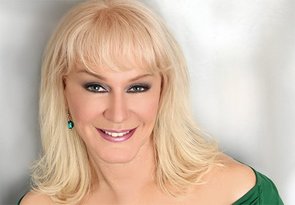



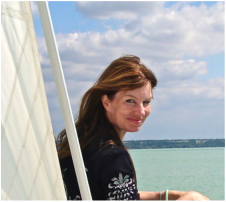
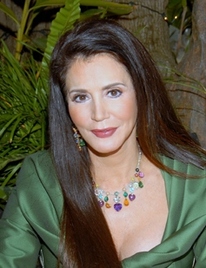
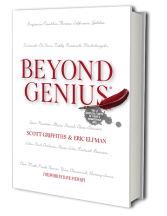
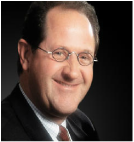
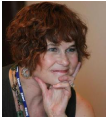
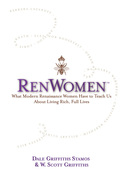
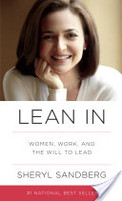
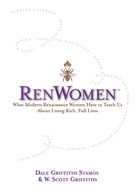
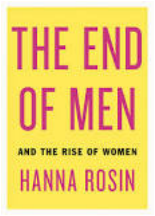

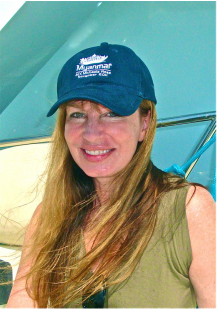
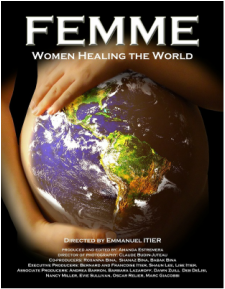

 RSS Feed
RSS Feed